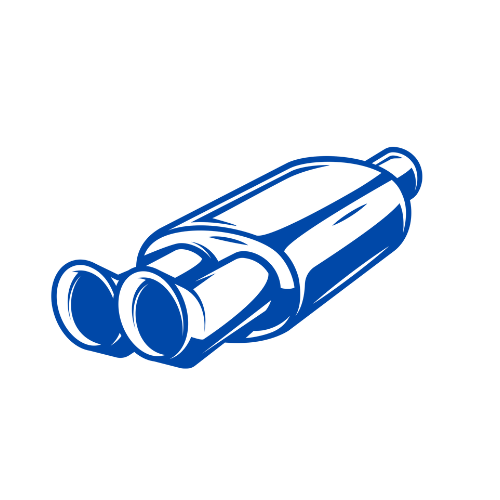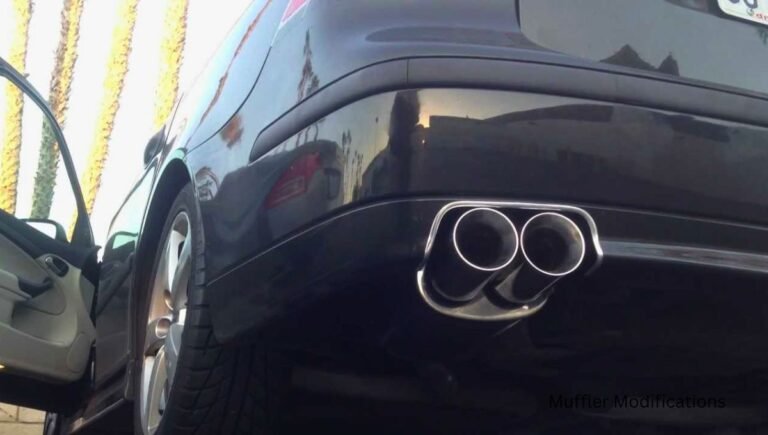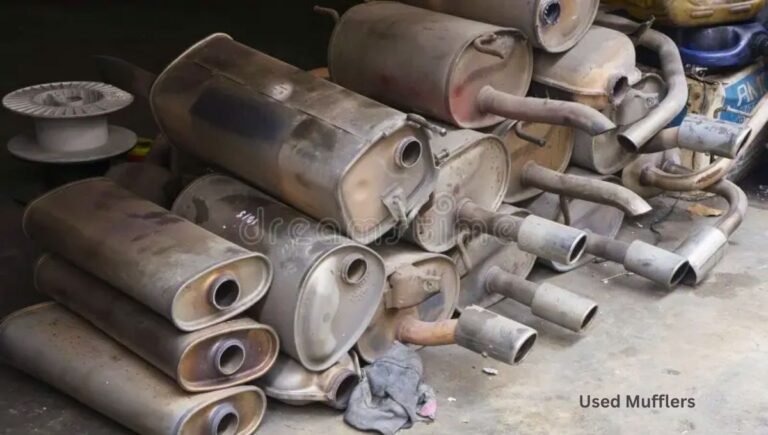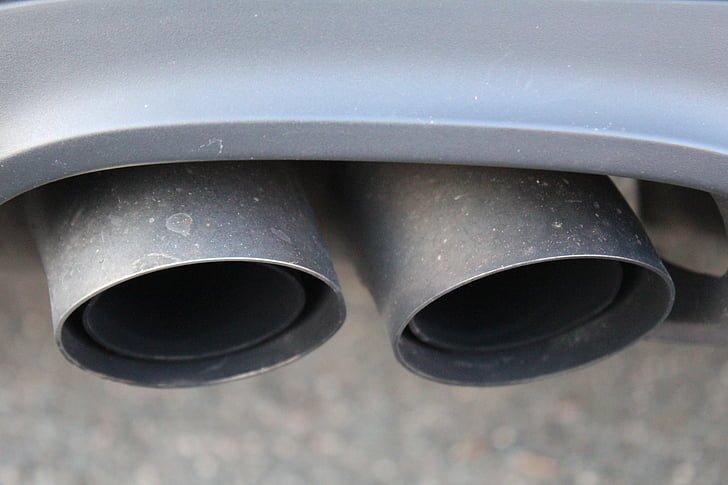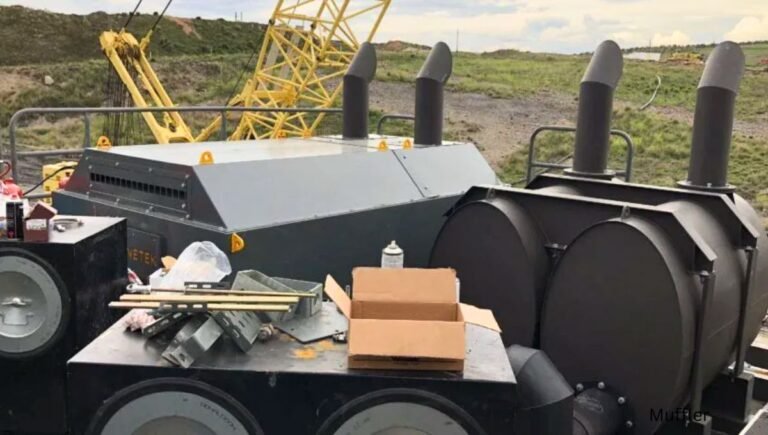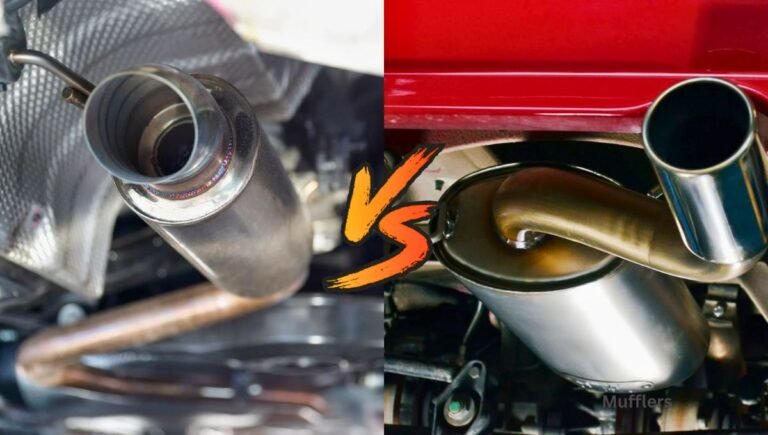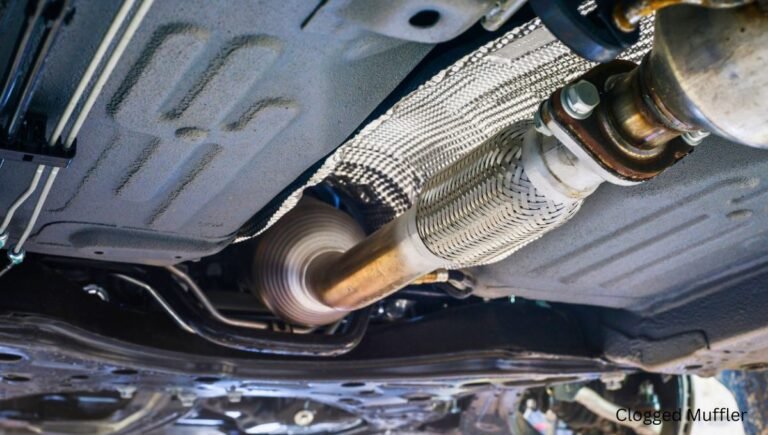Why is My Muffler Leaking Water? Unveil the Mystery!
Your muffler is leaking water due to condensation, which is a normal process in the exhaust system. As the exhaust gases cool down, the moisture in the air condenses and collects in the muffler.
This water then exits the muffler in the form of droplets. However, if you notice excessive water or a continuous stream, it could be a sign of a larger issue such as a cracked or damaged muffler. In such cases, it’s best to take your vehicle to a professional mechanic for inspection and repair.
Neglecting to address a muffler issue can lead to decreased performance, increased emissions, and even potential safety hazards.
Introduction To Muffler Condensation
When you notice water leaking from your muffler, it’s natural to be concerned. The presence of water can sometimes indicate a problem, but in many cases, it’s actually a normal occurrence. Understanding the phenomenon of muffler condensation can help to ease your worries and ensure that your vehicle is functioning as it should.
The Role Of Mufflers In Vehicles
The muffler is a crucial component of a vehicle’s exhaust system. It is designed to reduce the noise produced by the engine as exhaust gases are expelled. This is achieved through a series of chambers and baffles that help to muffle the sound, hence the name “muffler.”
Common Misconceptions About Muffler Leaks
There are several misconceptions surrounding water leaking from mufflers. It’s important to dispel these myths to avoid unnecessary concern and expense. One common misconception is that water leaking from the muffler indicates a serious problem. In reality, this moisture is often the result of a normal condensation process within the exhaust system.
Water In The Exhaust System
Normal Byproduct Of Combustion
Water in the exhaust system is a common occurrence and is typically a normal byproduct of the combustion process in your vehicle’s engine. When the fuel is burned, it produces water vapor as a natural part of the combustion process.
Condensation: A Natural Process
As the hot exhaust gases cool, condensation naturally occurs inside the exhaust system, causing water to accumulate. This condensation is entirely normal and is a result of the temperature difference between the hot exhaust gases and the surrounding air.
When To Be Concerned
Noticing water leaking from your muffler can be concerning as it may indicate internal issues like a cracked engine block or a blown head gasket. Addressing this promptly is crucial to prevent further damage to your vehicle’s engine.
If you have ever noticed water dripping from your car’s muffler, you might wonder if it’s normal or a cause for concern. While some water droplets are normal, excessive water dripping could indicate a problem with your muffler. Here are some things to look out for to determine when to be concerned.
Identifying Excessive Water Drip
It is normal for a small amount of water droplets to come out of your muffler’s tailpipe. However, if you notice a significant amount of water dripping, it could indicate a problem. If the water droplets are clear and thin, it is most likely water condensation, which is normal. But if the droplets are thick and murky, it could be a sign of a bigger problem.
Other Symptoms Of Muffler Issues
If you notice water dripping from your muffler, it could be a sign of other muffler issues. Some other symptoms to look out for include:
- Unusual noises coming from the muffler
- A decrease in gas mileage
- Decreased engine performance
- Strong exhaust odor
If you notice any of these symptoms along with excessive water dripping, it is best to take your car to a mechanic as soon as possible.
In conclusion, while some water droplets are normal, excessive water dripping from your muffler could indicate a problem. Keep an eye out for other symptoms and take your car to a mechanic if you suspect an issue.
Weather’s Impact On Your Muffler
As the weather changes, you may notice that your vehicle’s muffler is leaking water. This can be a cause for concern, but understanding the reasons behind it can help put your mind at ease. In this article, we will explore the various factors related to weather that can impact your muffler and lead to water leakage.
Effects Of Cold Weather
Cold weather can have a significant impact on your vehicle’s muffler. When the temperature drops, the warm exhaust gases inside the muffler cool down rapidly. This rapid cooling causes condensation to form, resulting in water droplets accumulating inside the muffler. Over time, this moisture can lead to rust and corrosion, potentially causing leaks in the muffler.
In regions with extreme cold temperatures, such as during winter months or in colder climates, the chances of your muffler leaking water are higher. The repeated cycle of heating and cooling can accelerate the formation of condensation, increasing the likelihood of water leakage.
Humidity And Your Vehicle
Humidity levels in the air can also play a role in your muffler leaking water. When the air is humid, it contains more moisture. As the hot exhaust gases pass through the muffler, the moisture in the air condenses, leading to water droplets forming inside the muffler. This can be more pronounced in areas with high humidity, such as coastal regions or during rainy seasons.
Furthermore, if your vehicle is frequently exposed to rain or snow, water can enter the exhaust system and accumulate in the muffler. This can further contribute to the likelihood of water leakage, especially if the muffler is not properly sealed or if there are any cracks or holes present.
To minimize the impact of humidity on your muffler, it is essential to ensure regular maintenance of your vehicle. Regular inspections and repairs can help identify and address any issues before they worsen, preventing water leakage and extending the lifespan of your muffler.
In conclusion, understanding the impact of weather on your muffler can help you identify the reasons behind water leakage. Cold weather and high humidity levels can contribute to the formation of condensation and subsequent water accumulation in the muffler. By taking appropriate measures and maintaining your vehicle, you can minimize the risks of muffler leaks and ensure optimal performance.
Engine Health And Water Production
Muffler leaking water? This could signal engine health issues, causing water to accumulate and escape. It’s crucial to address this promptly to prevent further damage and ensure optimal vehicle performance.
Rich Vs. Lean Combustion
When it comes to engine health and water production, understanding the concept of rich and lean combustion is crucial. In simple terms, rich combustion refers to an air-fuel mixture that contains an excess amount of fuel, while lean combustion refers to a mixture that contains a higher proportion of air than fuel. Both scenarios can impact the production of water in your muffler, albeit in different ways.
During rich combustion, where there is an excess of fuel, incomplete combustion can occur. This means that not all the fuel is burned, resulting in the production of water vapor as a byproduct. The excess fuel reacts with oxygen in the exhaust system, leading to the formation of water. This excess water vapor can then condense and accumulate in the muffler, causing it to leak water.
On the other hand, lean combustion, which involves a higher proportion of air, can also contribute to water production. In this case, the excess air can cause the engine to run at higher temperatures. As the hot exhaust gases come into contact with the cooler muffler, the water vapor within the exhaust can condense and collect in the muffler, leading to water leakage.
The Role Of Engine Temperature
Engine temperature plays a significant role in water production and muffler leakage. When the engine is cold, it takes longer for it to reach its optimal operating temperature. During this warm-up phase, water vapor produced from the combustion process can condense and accumulate in the exhaust system, including the muffler.
Furthermore, short trips or stop-and-go driving can also contribute to muffler leakage. These types of driving conditions prevent the engine from reaching its optimal temperature, leading to increased condensation and water accumulation in the muffler. It is important to note that prolonged periods of idling can also result in lower engine temperatures, increasing the likelihood of water leakage.
Summary
In summary, engine health and water production are interconnected when it comes to muffler leaks. Rich and lean combustion can both contribute to the production of water vapor, which can then condense and accumulate in the muffler. Additionally, engine temperature plays a crucial role in water production, with cold engines and short trips being more prone to muffler leakage. By understanding these factors, you can take appropriate measures to maintain your engine’s health and prevent water leakage from your muffler.
Muffler Maintenance Tips
When it comes to maintaining your vehicle’s muffler, regular inspections and preventive measures are crucial to ensure its proper functioning and longevity. By understanding the potential causes of water accumulation in the muffler and implementing effective maintenance practices, you can prevent issues and extend the lifespan of this essential component.
Regular Inspections
Regularly inspect your muffler for signs of water leakage to identify any potential issues early on. Look for water droplets or moisture around the muffler and exhaust pipe, as this could indicate a leak. Additionally, perform visual inspections for any signs of corrosion or damage that could lead to water accumulation.
Preventive Measures For Water Accumulation
Implement preventive measures to minimize the risk of water accumulation in your muffler. Park your vehicle in a sheltered area to reduce exposure to moisture and precipitation. Additionally, ensuring proper drainage of the exhaust system and maintaining a consistent driving routine can help evaporate any residual moisture within the muffler.
When To Seek Professional Help
If you notice any of these signs, it’s time to seek professional help:
Signs Of Muffler Damage
- Excessive water leaking from muffler
- Rust or holes on the muffler
- Loud noises coming from the exhaust system
Choosing The Right Mechanic
When selecting a mechanic:
- Look for experience and expertise
- Check for customer reviews and ratings
- Ensure the mechanic is certified and licensed
Myths And Facts About Muffler Water Leaks
Muffler water leaks are often misunderstood. The presence of water is normal and is a byproduct of the combustion process. However, excessive water could indicate a more serious issue like a blown head gasket or internal coolant leak. It’s important to differentiate between harmless condensation and potentially damaging leaks.
Debunking Common Myths
Muffler water leaks often spark myths and misconceptions. Let’s separate fact from fiction.
- Myth: Water leaks from mufflers indicate a serious problem.
- Fact: Condensation is a common cause of muffler water leaks.
- Myth: Water leaks mean the muffler is damaged.
- Fact: Minor water leaks can be normal and harmless.
Realistic Expectations From Exhaust Systems
Understanding what to expect from your car’s exhaust system can help ease concerns.
- Fact: Water in the exhaust system can be a byproduct of combustion.
- Fact: Short drives may not allow the system to fully evaporate water.
- Fact: Rust can cause holes, leading to more severe leaks.
Conclusion
In a nutshell, addressing a leaking muffler promptly is crucial. Regular maintenance can prevent issues. Understanding why water leaks occur is essential for timely repair. Stay vigilant and seek professional help for a quiet and efficient exhaust system. Prioritize your vehicle’s health for a smooth driving experience.
